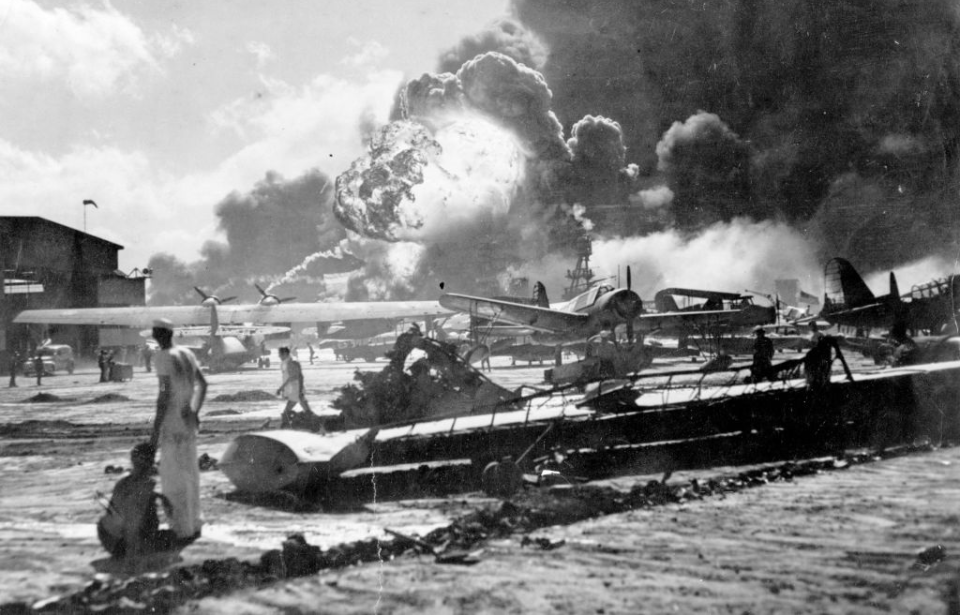Is there any wisdom in fighting with your neighbor if your family is already mired in a dispute with someone else down the block? Any sensible person would likely say no, as how can one’s attention and resources be properly focused on two arguments at once? This analogy is apt when looking back at Japan’s movements in the South Pacific during the Second World War.
Already depleted by its war against China, the country and its military decided to plunge headfirst into a fight against the United States, attacking Pearl Harbor on December 7, 1941. Japan had no hope of matching America’s military might. Irrespective of the reality of the situation, the Imperial Japanese forces dove in.
Adm. Isoroku Yamamoto’s remarks
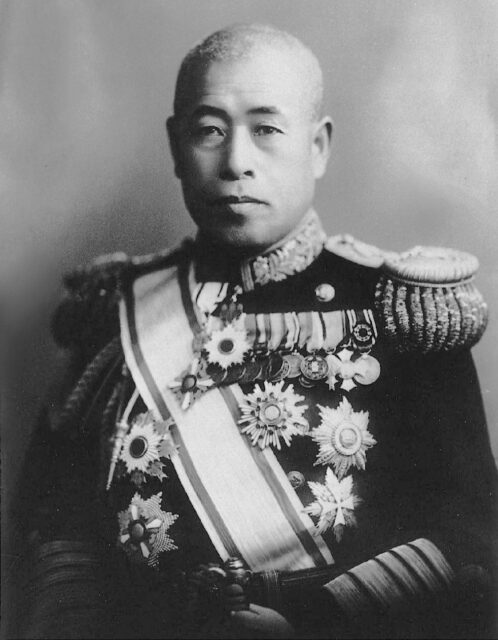
Imperial Japanese Navy (IJN) Adm. Isoroku Yamamoto was the mastermind behind the attack on Pearl Harbor. In the lead-up to the assault, he’d been weary over striking the United States, cautioning his superiors against “poking the giant,” saying, “I can tell you that they are full of spirit, adventure, fight, and justice […] Japan cannot vanquish the United States. Therefore we should not fight the United States.”
He added that entering into such a conflict would be like “going to war with the whole world.”
When he realized his warnings had fallen on deaf ears, Yamamoto decided that the only way for he and his comrades to defeat the US was to attack the country’s naval yards and engage in what he dubbed a lightning-fast war. However, it would soon be realized that he’d been right from the get-go regarding America’s might.
Why did Japan launch an attack on Pearl Harbor?
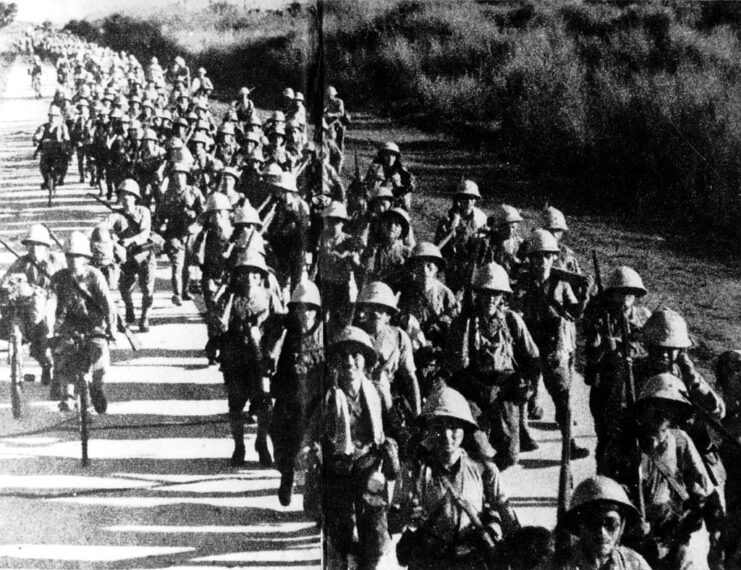
Japan’s military simply couldn’t compete with the United States. It was badly depleted by its war with China. Despite this, it went ahead and struck the Philippines, which was, at that time, under the control of the US.
A question that’s interested historians and researchers for decades is why? Why did Japan launch an attack that, in hindsight, it clearly had no chance of winning? The obvious answer is that military and government personnel thought they could.
Precisely because its resources were so depleted by the war with China, it’s accepted wisdom that Japan was hoping to expand its territories in the Pacific. If these areas were captured, they’d, almost by default, become customers for its industrial and resource sectors, along with provide the necessities to ensure the country could keep up its expansionist goals.
Underestimating America’s resolve
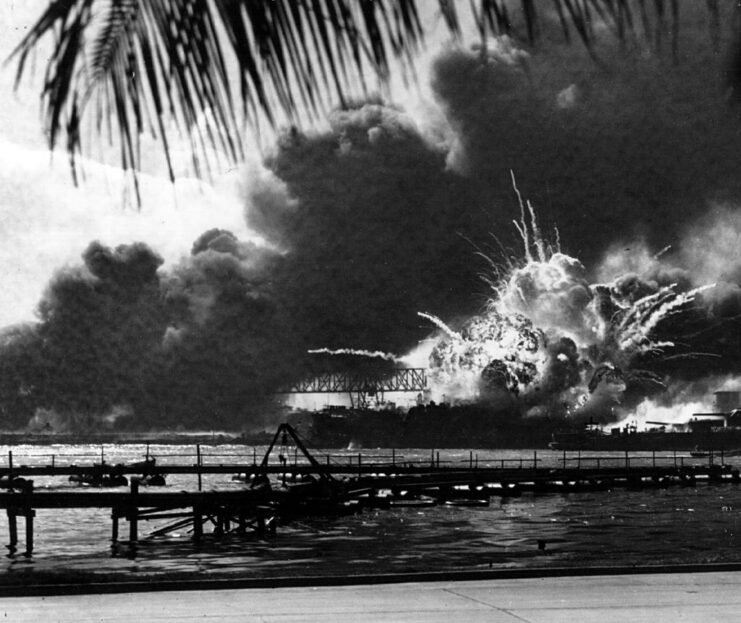
However, the Japanese underestimated America’s resolve to defend itself – for however long and by whatever means necessary. If the former hoped the latter might take a “c’est la vie” attitude to the prospect of losing the Philippines, it was sorely mistaken, nor was the United States still weary from the First World War.
Japan also underestimated the extent of Americans’ outrage over the 1941 attack. It fueled the nation’s desire to win at almost any cost. No democratic government on earth can move forward without the will of the people, and, after Pearl Harbor, the American people’s was ferocious.
Japan imagined one monumental battle – with itself as the victor – like those it’d had years earlier with China and Russia, which was yet another big mistake. Some historians believe the Japanese hoped America would prefer to cede the Philippines and nix the idea of war. Once again, it had miscalculated.
What lessons were learned from the attack on Pearl Harbor?
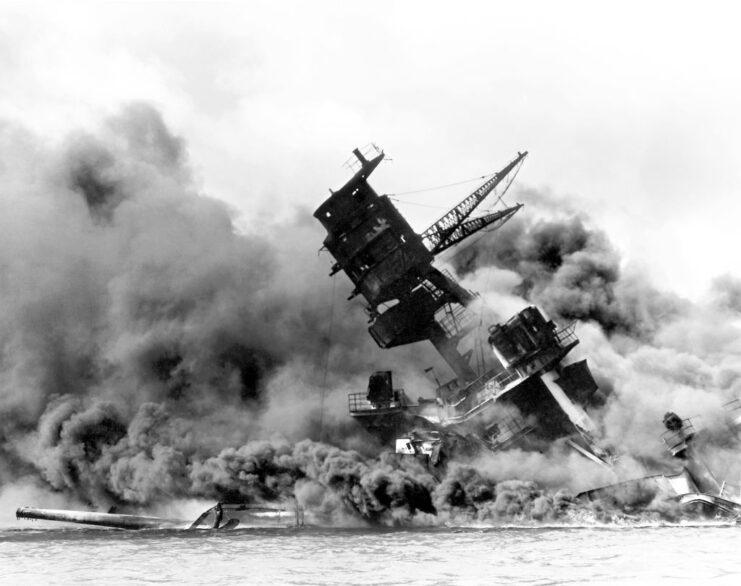
The lead mafioso in The Godfather (1972) says, “Keep your friends close, but your enemies closer.” Japan didn’t learn that lesson in time to be spared America’s wrath, in the form of atomic bombs.
Today, relations are much better; if the two don’t exactly embrace one another, they, at least, have a cordial understanding, and that’s the kind of relationship that stops wars before they have a chance to begin.
Many feel, however, that the United States mustn’t become lax or smug about past victories. James Holmes, the J.C. Wylie Chair of Maritime Strategy at the Naval War College and the author of several books on wartime strategy, believes the country must be at the ready, should conflict arise.
More from us: Two American Fighter Pilots Took on the Japanese Attack at Pearl Harbor – Hungover
Want War History Online‘s content sent directly to your inbox? Sign up for our newsletter here!
Provocations like Japan’s won’t occur in the 21st century – everything will happen at an accelerated rate. Holmes’ article on The National Interest drives home the point. “Let’s do the same – and get ready. If we do, those who fell here seventy-five years ago will have rendered good service once again,” he wrote.
